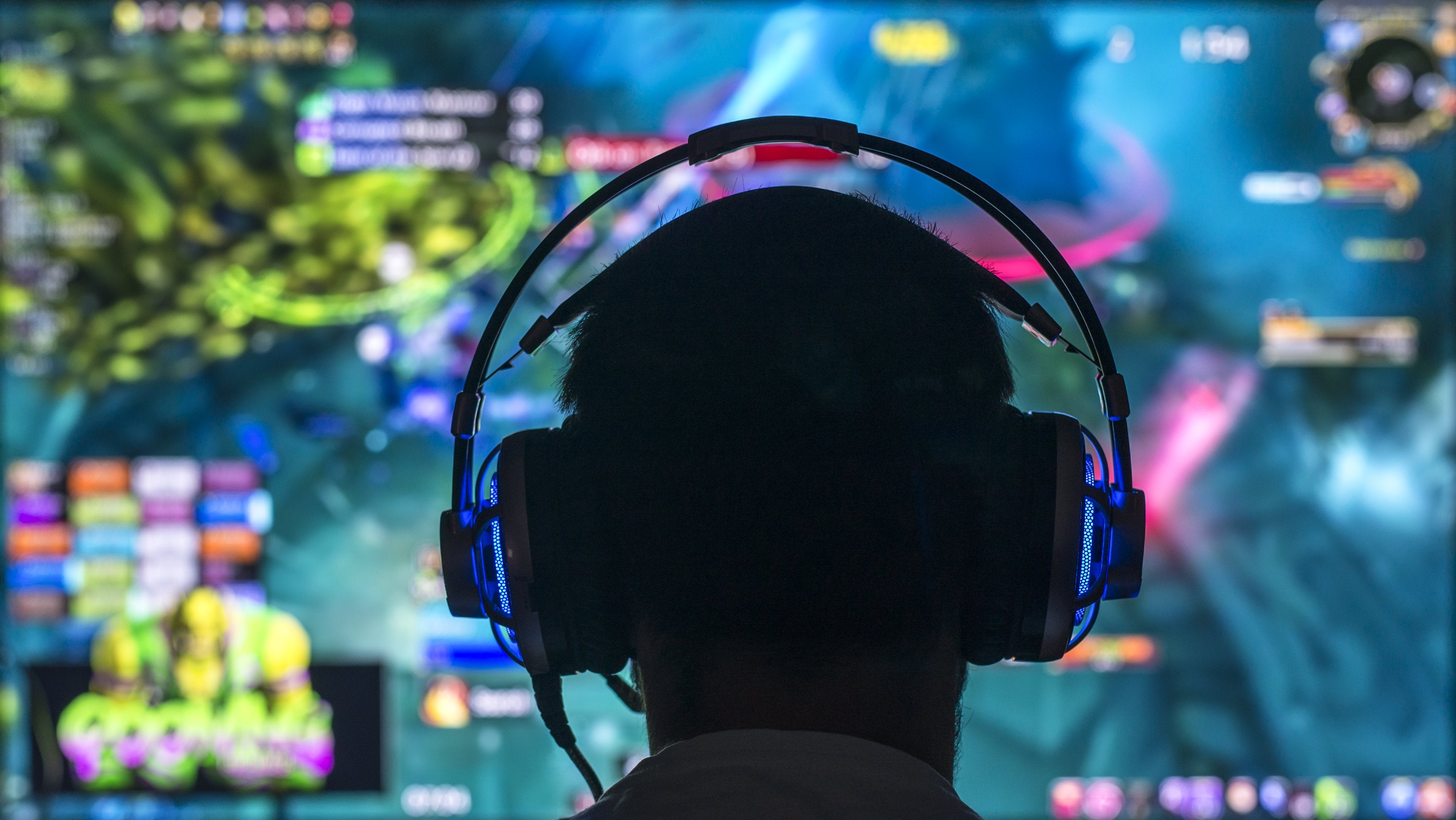Creating brand love in games
The increasing influence of gaming on culture, combined with the promise of the metaverse, has created limitless opportunities for marketers and advertisers. Gaming has shifted from playing solo to spectator engagement with the rapid rise of e-sports and streaming platforms. Gaming platforms are now a primary channel for social interactions and self-expression. At dentsu, we believe everyone is a gamer — a community connected across borders around the things they love.
Which 4 forces define the future of gaming?

Everyone is a gamer
70% of internet users state that they play video games. 46% do this on mobile, 29% via their computer, followed by the game consoles with 26%. There are more gamers than ever before and they are also playing for longer periods of time. We watch, stream and become creators in the world we find ourselves in.
It has become a place that offers space for self-expression, where communities form organically and there is justice for all. It is this accessibility, representation and inclusion that should be (even) more prominent and central to campaigns voiced in the metaverse.
Gaming = culture
Gaming is no longer an individual game or something that needs to be done very actively. Platforms such as Twitch have led to an exponential increase in the number of viewers. Belgium has more than 247.000 unique viewers per day, accounting for 13.1 million viewing hours per month.
This is also being capitalized on by sectors that at first glance do not seem to have a strong connection with the gaming community. The music industry, for example, has already responded to this new audience at various times with live concerts.
The nice thing about this is that it is not intrusive. Something that is becoming increasingly important. You have to be part of the whole thing and not want to interrupt it — so co-creating is the message.
The growth is exponential
By 2023, there will be 3.07 billion gamers worldwide and advertising revenues will diversify including mobile, video, in-game and e-sports. In addition, the arrival of 5G and the rise of the cloud are fueling the spread of gaming. It enables the industry to become more accessible and connect people even better.
It is important that brands see gaming as a separate model and use it as such. There must be a clear strategy on the table whereby communication is specifically designed towards the gaming audience, which is becoming increasingly influential.

The business model is evolving
The industry is evolving. We are moving towards gaming as a service — where users are able to improve their experience with in-game purchases and updates for example. This allows them to change their avatars or make the world they are playing in even better.
Within the business model, it is important to follow these updates. This gives the brand insight into how it can help to improve the user. Think of; which digital versions of your products can improve the gaming experience so that it can be used. A great example is branding the shirts of the players in e-sports.
In the end, it's about advertisers and publishers working together to create exclusive branded content. Content that complements the game and focuses on an authentic experience of this very diverse generation of players.
This article was published in PUB Magazine (Belgium) in July 2022.

